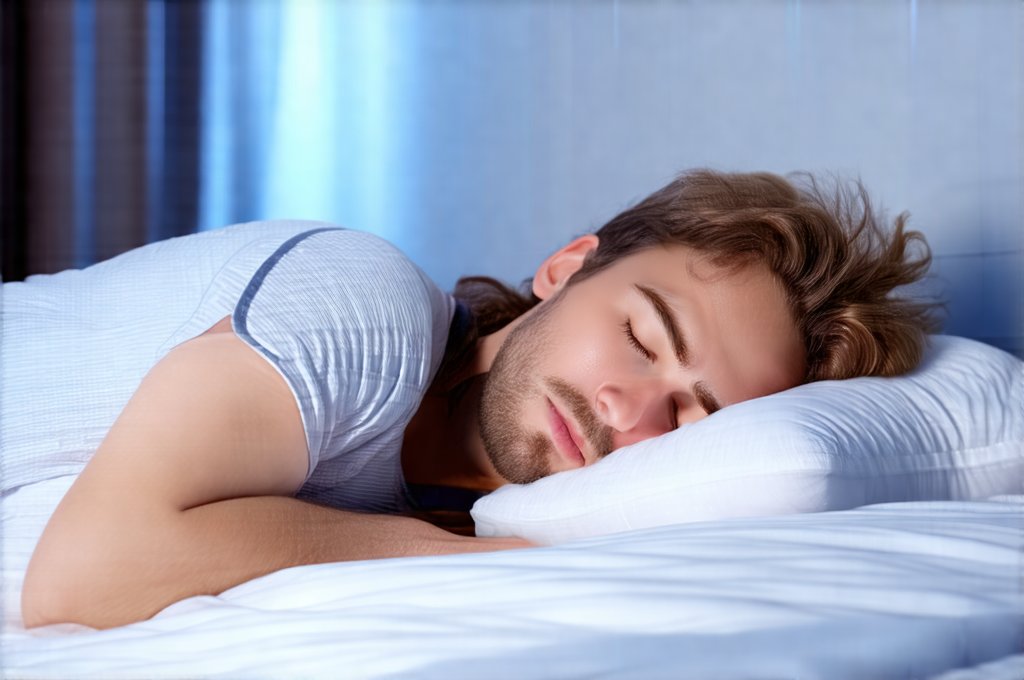The human body operates on rhythms – internal biological clocks dictating everything from hormone release to sleep-wake cycles. For decades, we’ve understood the importance of regular sleep for overall health, but recent research is pinpointing how that regularity impacts specific physiological processes, particularly those governing nocturnal urinary function. It’s becoming increasingly clear that consistent sleep schedules aren’t simply about feeling rested; they are fundamental to regulating hormonal systems responsible for maintaining fluid balance overnight and preventing disruptive nighttime bathroom trips. Disruptions to these rhythms – whether through shift work, irregular bedtimes, or even weekend “sleep-ins” – can destabilize hormone release, leading to increased nocturnal urine production and potentially impacting sleep quality and daytime function.
This isn’t just about convenience; the implications extend beyond a simple annoyance. Frequent nighttime urination (nocturia) is associated with several health concerns, including falls in older adults, impaired cognitive function, and even increased cardiovascular risk. Understanding the link between sleep regularity and hormone regulation offers a potential avenue for addressing these issues – not necessarily through medication, but through lifestyle adjustments focused on establishing predictable sleep-wake patterns. The emerging science suggests that optimizing this fundamental aspect of our daily routine can have profound effects on physiological stability and overall well-being. You might find more information about stabilizing flow with evening movement patterns.
The Role of Vasopressin and the Circadian System
The key hormone involved in regulating nocturnal urine production is vasopressin (also known as antidiuretic hormone, or ADH). This hormone signals the kidneys to conserve water, reducing urine output. Its release isn’t constant; it’s tightly controlled by our circadian rhythm – the internal 24-hour clock that governs many bodily functions. Normally, vasopressin levels rise during sleep, peaking in the later hours of the night, which leads to a natural reduction in urine production and allows for uninterrupted rest. However, this hormonal surge is highly dependent on consistent sleep timing. When sleep schedules are erratic, the circadian rhythm becomes disrupted, and vasopressin release can become unstable.
Research demonstrates that individuals with irregular sleep patterns exhibit blunted or delayed vasopressin secretion during sleep. This means their kidneys aren’t receiving the signal to conserve water effectively, leading to increased urine production while they’re trying to sleep. The consequence is frequent awakenings to use the bathroom – a vicious cycle that further disrupts sleep and exacerbates hormonal imbalances. Studies utilizing polysomnography (sleep studies) and hormone assays have consistently shown this correlation: greater sleep regularity corresponds to more robust nocturnal vasopressin release and reduced nighttime urination frequency. It’s useful to consider how to align sleep patterns for better stability.
Importantly, the circadian system isn’t just affected by when we sleep; it’s also influenced by exposure to light, meal timing, and social cues. These factors all interact to shape our internal clock. A consistent bedtime routine – including dimming lights, avoiding screens before bed, and eating meals at regular times – can reinforce the circadian rhythm and support healthy vasopressin release. This is why a holistic approach to sleep hygiene, beyond simply aiming for 8 hours of sleep, is so crucial.
Sleep Debt and Hormonal Disruption
Sleep debt refers to the cumulative effect of not getting enough sleep over time. While an occasional night of poor sleep isn’t usually detrimental, chronic sleep deprivation creates a significant burden on the body’s physiological systems. It doesn’t just make you feel tired; it actively disrupts hormonal balance. Specifically, chronic sleep debt can impair the sensitivity to vasopressin, meaning even if some hormone is released, the kidneys don’t respond as effectively to its signal. This leads to increased urine production and further exacerbates nocturia.
Furthermore, sleep debt impacts other hormones crucial for overall health and well-being, such as cortisol (the stress hormone) and melatonin (the sleep-promoting hormone). Elevated cortisol levels can interfere with sleep quality and increase nocturnal urine output, while suppressed melatonin release disrupts the circadian rhythm, creating a feedback loop of hormonal imbalance. The body attempts to compensate for lost sleep by increasing cortisol production, further disrupting the delicate hormonal balance needed for proper kidney function during the night.
Addressing sleep debt isn’t simply about getting more hours of sleep one weekend; it requires consistent efforts to prioritize sleep as an essential component of health. Strategies include:
1. Establishing a regular bedtime and wake-up time, even on weekends.
2. Creating a relaxing bedtime routine.
3. Optimizing the sleep environment (dark, quiet, cool).
4. Avoiding caffeine and alcohol before bed. In some cases, balanced meals can help with hormonal stability.
Social Jetlag and Circadian Misalignment
Social jetlag describes the discrepancy between our biological clock and our social schedule – essentially, the difference between when we naturally want to sleep and wake up versus when work or other obligations require us to be awake and active. This is particularly common among individuals who have significantly different schedules on weekdays versus weekends. The result is a chronic state of circadian misalignment, which wreaks havoc on hormonal regulation.
Think about it: you might rigidly adhere to a 7 AM wake-up during the week for work but then sleep until noon on Saturday and Sunday. While seemingly harmless, this pattern sends conflicting signals to your internal clock. The body struggles to adapt to these rapid shifts, leading to instability in vasopressin release and increased nocturnal urine production. Studies have shown that individuals with significant social jetlag are more likely to experience nocturia and other sleep-related disturbances. The continuous resetting of the circadian rhythm prevents the development of a stable pattern for hormone secretion.
Reducing social jetlag requires minimizing differences between weekday and weekend sleep schedules. Ideally, aim to wake up within an hour or two of your usual weekday time even on days off. This helps maintain circadian stability and supports healthy hormonal regulation. Consistency is key – even small adjustments can make a significant difference in improving sleep quality and reducing nighttime urination.
Light Exposure and Circadian Entrainment
Light is the most powerful external cue for setting our circadian rhythm. Specifically, exposure to bright light suppresses melatonin production and signals the body that it’s time to be awake. Conversely, darkness promotes melatonin release and prepares the body for sleep. However, artificial light – from screens, overhead lighting, and even streetlights – can disrupt this natural process. The blue light emitted from electronic devices is particularly potent in suppressing melatonin, making it harder to fall asleep and stay asleep.
To support a healthy circadian rhythm and optimize vasopressin release, it’s crucial to maximize exposure to bright light during the day (ideally outdoors) and minimize exposure to artificial light in the evening. This includes:
– Getting sunlight first thing in the morning.
– Using blue light filters on electronic devices.
– Dimming lights in the evening.
– Creating a dark sleep environment. If discomfort occurs, consider safe natural options for soothing mild issues.





















